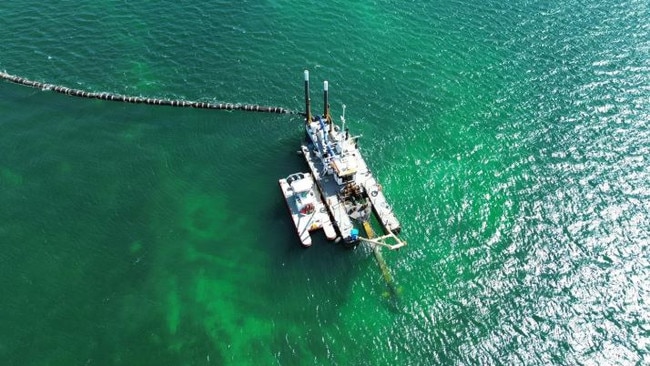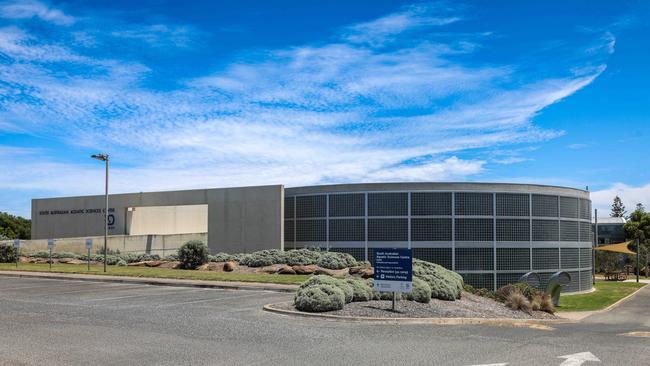Ugly spat erupts as mass SARDI fish and marine life death mystery deepens amid official warnings over beach dredging
Authorities are investigating if an official operation to dig up sand killed hundreds of thousands of fish at a taxpayer-funded scientific laboratory.

SA News
Don't miss out on the headlines from SA News. Followed categories will be added to My News.
Sea dredging risks marine biosecurity, according to authorities who are investigating if an official operation to dig up sand killed hundreds of thousands of fish at a taxpayer-funded scientific laboratory.
Authorities are investigating why more than 200,000 snapper fingerlings, almost three quarters of the state’s research oyster splat and scores of baby barramundi mysteriously died near an Adelaide beach in October.
The state’s government’s flagship South Australian Research and Development Institute and an adjacent beachside fish nursery at West Beach suffered the “catastrophic” losses.
Oyster industry chiefs on Monday said they were going to lose nearly a full year of a breeding programs.
But amid fears the Environment Department’s $20.7m mechanical beach dredging trial is to blame, the mystery deaths crisis deepened as official new warnings have emerged about the dangers such underground work poses to marine life.
The Primary Industries Department, which is heading the investigation into the unprecedented fish mortality at its flagship marine research hub, warns of dredging dangers on its official website.
“Dredging activities present biosecurity risks associated with the introduction and spread of aquatic pests and diseases,” it states.
“Aquatic pests are a significant threat to South Australia’s fisheries, aquaculture, recreation and tourism industries.”
PIRSA’s investigation, which also involves multiple other government agencies including the Environment Department and the industry watchdog, has so far failed to establish how the marine species died but have ruled out a virus.
The Environment Protection Authority approved the government trial for a 24-hour mechanical dredge to vacuum more than 90,000 cubic metres of sand from the sea floor, near North Haven marina and adjacent the West Beach boat ramp in October and November.
SARDI workers, and staff at the neighbouring Robarra Broodstock Sanctuary and Hatchery reported fish illnesses shortly after the dredging began.
Opposition spokeswoman, Upper House MP and former Vet, Dr Nicola Centofanti, said it was shocking the environmental risks of dredging were never communicated to those who “deeply care for this coastline”.
Criticising ministers for failing to be across their brief and contradicting themselves, she added: “There must be an independent review, particularly in light of PIRSA’s own advice around dredging on (its) website.
“We have a multimillion-dollar industry under threat here and the Government must do more to protect it.”

Primary Industries Minister Clare Scriven was unavailable for comment on Monday night after defending the government’s actions in various radio interviews.
Her spokeswoman said the problems will not effect snapper fishing ban decisions past June 2026, adult broodstock were healthy while SARDI will work with the SA oyster industry on how to recover.
She noted SARDI produces research spats only.
An EPA spokeswoman on Monday night said the agency regulated and monitored the dredging trial in accordance with its licencing agreement with the dredging contractor.
“The licencing agreement sought to ensure that measures and controls were in place throughout the dredging trial to prevent and/or minimise environmental harm,” she said.
“The EPA is providing support to PIRSA who are leading the investigation.”





